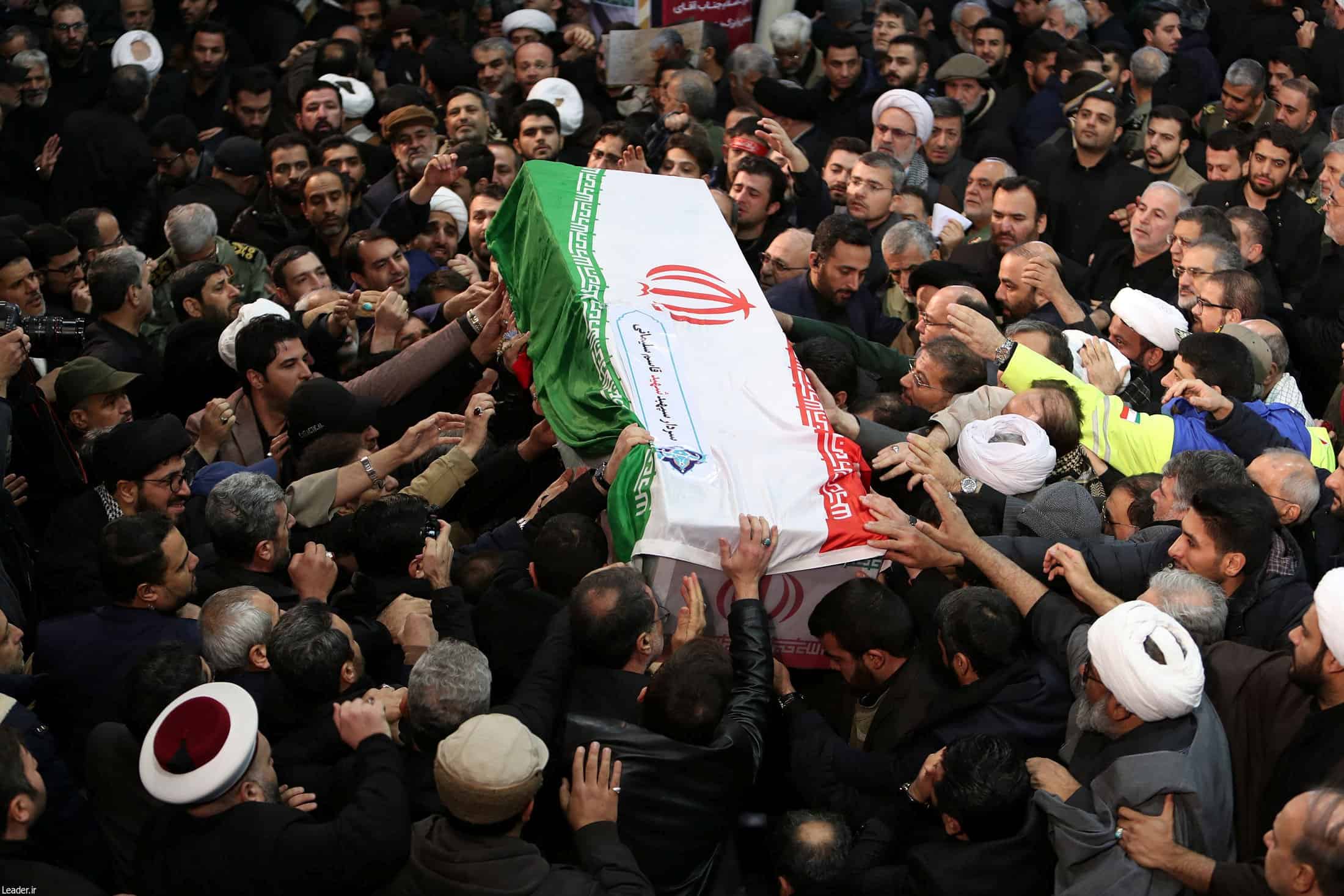The new year began with an explosion heard around the world.
On January 3, President Trump ordered the assassination of Iranian General Qassem Soleimani at Baghdad International Airport by drone strike. Many at home and abroad have challenged President Trump’s strategic justification for the attack, but there are also ethical concerns that need to be addressed.
Who was Qassem Soleimani? Head of an elite force within Iran’s Islamic Revolutionary Guard Corps, Soleimani was one of the most powerful officials in Iran at the time of his death. He was responsible for projecting Iranian power abroad, which included managing Iran’s involvement in the Syrian and Yemeni wars as well as Iran’s close relationship with Shia military and political organizations in Iraq and Lebanon.
Trump administration officials argued that Soleimani’s killing was justified because it prevented “imminent” attacks against Americans that Iran was planning in Iraq. Indeed, the days leading up to the Baghdad airport strike saw an attack on a U.S. military base in Kirkuk that killed an American defense contractor, as well as the storming of the American embassy in Baghdad’s Green Zone on New Year’s Eve, which resulted in damage to several security installations there. The U.S. government had blamed those attacks on an Iraqi military group that Soleimani allegedly supported.
While arguing that the assassination of Soleimani would deter future strikes, President Trump at the same time acknowledged that he expected a violent response from Iran as a result of the assassination. Within days, in fact, Iran undertook a missile strike against American forces at two military bases in Iraq, although this attack did not result in American casualties. Analysts have reflected on the seeming contradiction that provoking attacks on Americans was part of a strategy designed to prevent attacks on Americans.
So, if the strategic thinking with regard to Soleimani’s assassination seems unclear, what of the ethical justification? How should Christians respond to Soleimani’s death?
The tradition of Catholic social thought offers clear parameters for considering the situation. The Catechism of the Catholic Church (CCC) places strict limits on the legitimate use of military force. According to the Church’s “just war” doctrine, a country may use its military to defend itself, provided these conditions are met: that the damage done by the enemy has been truly grave, there is no other alternative to fend off further damage, that there are “serious prospects of success” as a result of such defensive action, and that such action does not cause effects that are worse than “the evil to be eliminated.” (CCC 2309)
Further, the CCC underscores that such action must be defensive in nature, because “the fifth commandment forbids direct and intentional killing as gravely sinful.”(CCC 2268) On the other hand, defense of the common good is not only a right but a duty, and “requires that an unjust aggressor be rendered unable to cause harm.” (CCC 2265). Even the death of an aggressor can be justified if the killing was an unintended result of self-defense or defense of the common good.
In a recent article in the National Catholic Reporter, a group of Catholic ethicists gave their views on the Soleimani assassination. While Soleimani was clearly “an ongoing perpetrator of attacks on U.S. and allied forces,” the administration has not provided clear evidence that he posed an imminent threat, according to Lisa Sowle Cahill of Boston College. In addition, Stephen Schneck of the Franciscan Action Network notes that the use of a drone strike to kill Soleimani amounted to an execution, “and the catechism calls executions impermissible” after Pope Francis’ 2018 revisions of the CCC.
Furthermore, the CCC envisions that leaders stand in firm opposition to war and work to achieve peace; President Trump, on the other hand, chose to undertake, as Pax Christi co-president Marie Denis named it, “an act of war that could have escalated violence in the region and beyond.” In assassinating Soleimani, President Trump seems to have opted for an “easy fix,” in the words of Tobias Winright of Saint Louis University, choosing to use impersonal technology rather than “actual contact and communication with other persons,” which calls into question whether the attack was really a last resort, as just war theory requires.
Elsewhere, Kevin Miller of Franciscan University of Steubenville disagrees that Catholic teaching necessarily prohibits the use of drone strikes, but he questions whether the assassination actually furthered America’s goals in the long run. Similarly, Jeffrey Cimmino of Crisis magazine worries that Soleimani’s assassination could make already-vulnerable Middle Eastern Christians a bigger target. Therefore, the killing of Soleimani may not accomplish the requirements of probable success and not causing greater evil.
Given the parameters of just war theory, it seems Catholics have reason to doubt that General Soleimani’s death met the standards of legitimate defense. While the Trump Administration argued for the defensive nature of the attack, a targeted assassination makes it impossible to claim that Soleimani’s death was unintended. Soleimani did do grave damage to U.S. forces in the past, but it remains unclear whether his killing will successfully ward off future attacks or whether the assassination could lead to worse evils than inaction would have.
The complexity of analyzing Soleimani’s assassination through Catholic teaching should drive home for us the importance of subjecting national security and foreign policy to ethical rigor. The issues involved are not clear-cut or simple–-they never are-–but vigorous debate can help us as Catholics put our faith into practice in more ways than casting a vote once or twice a year. And, as we see so often, the stakes involved can be life or death.


